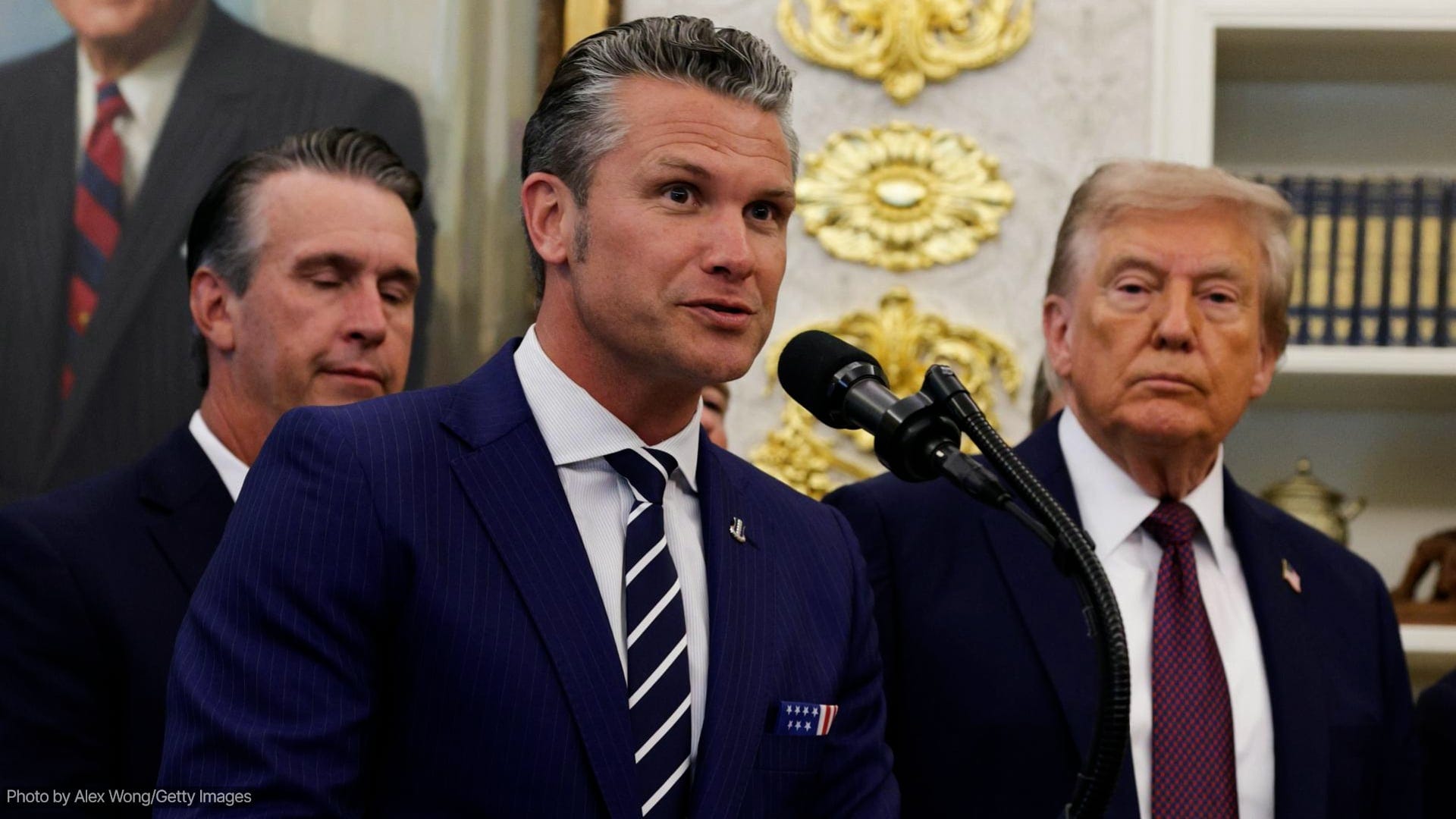The Army’s now-cancelled Command Assessment Program selected white male officers for command roles at a higher rate than women and minority officers.

Pete Hegseth axes Army’s NFL-style Command Assessment Program
The Army canceled its flagship Command Assessment Program after Defense Secretary Pete Hegseth’s office ordered a review of officer personnel practices.
unbranded – Newsworthy
An Army program for selecting unit commanders that a spokesman for Secretary Pete Hegseth condemned as “woke” selected white men for command roles at a higher rate than women and minority officers, according to internal data reviewed by USA TODAY.
Last year, it thwarted a four-star general’s attempt to boost an unfit subordinate.
The Army’s Command Assessment Program, known as CAP, screened officers for career-defining command jobs by combining a series of physical and mental tests with feedback from previous peers and subordinates. It existed independent of the service’s promotion system.
But Hegseth directed the program’s cancellation, celebrating the move in a Sept. 3 social media post saying, “Good riddance.” Pentagon Press Secretary Kingsley Wilson, in a statement to USA TODAY, said Hegseth alone ordered the move “because it was a failed, woke experiment.”
“Secretary Hegseth has been clear: promotions across the Department of War will be based on merit and performance, not trendy social fads,” Wilson added. “The Department’s priority is building a lethal, effective military where leadership is earned, not handed out through flawed programs.”
The CAP program was considered a “crown jewel” of the Army’s talent management reforms, said Mike Arnold, a fellow at the right-leaning Hoover Institution think tank and former deputy director of the Army Talent Management Task Force. CAP was designed to resemble how elite special operations units identify their members and leaders.
When the CAP pilot began in 2019 during President Donald Trump‘s first administration, Army leaders celebrated the departure from the service’s 70s-vintage practice of relying only on hurried paper-based personnel file reviews to pick key commanders.
“No longer will we spend weeks selecting a private for the Ranger Regiment,” a special operations unit, “while spending an average of two minutes to select battalion commanders,” said now-retired Gen. James McConville, then the Army’s chief of staff, in a 2019 article.
At the multi-day NFL Combine-style event, hopeful commanders had to pass fitness and body fat testing before undergoing psychological evaluation. An interview panel of senior officers would weigh those results and a candidate’s verbal and written communication abilities before voting on their fitness for demanding command roles. After passing, an officer’s ranking for command assignment was calculated from their CAP performance and their Army personnel file.
The Army will now return to its paper-based model of command selection, where a board of officers rapidly reviews a candidate’s personnel file. That model, according to Arnold, “is based almost solely on subjective (performance) evaluations about the length of a tweet.”
White men succeeded more in ‘woke’ program
CAP’s “double-blind” method of hiding a candidate’s identity from the senior officer panel voting on their file removed race from consideration.
Yet White men had the highest pass rate in the program, according to program data reviewed by USA TODAY. Women and minority officers were more likely to be found “not yet certified for command.”
“CAP is (designed) to reduce bias for everybody, not just … for minorities,” said Arnold. “It is intentionally designed to select the very best leader with as little bias as possible.”
A general’s failed interference
CAP also resisted an attempt by then-Gen. Charles Hamilton to interfere in the selection process for his former assistant, a Black female subordinate, in early 2024.
The Army’s inspector general found that Hamilton had improperly manipulated her performance records through a fudged evaluation and multiple prestigious awards, “strengthening her file for command consideration.”
In a paper board review, the officer’s file looked stellar: it earned 63 points out of a total of 66, according to the IG report.
But CAP found her unfit: her score at the event put her in the 1st percentile, meaning she scored worse than 99% of participants. The interview board, according to the inspector general’s report, unanimously ruled she was not ready for command due to a poor operational psychology assessment and low leadership and strategic thinking ability. Her peer and subordinate evaluations were mixed.
Hamilton attempted to pressure CAP to change its assessment, the IG report said; a second interview panel also found the officer not ready for command. He ultimately circumvented the CAP system to secure a policy exemption from Army Chief of Staff Gen. Randy George for the officer to be placed on the command list. (Hamilton did not respond to an inquiry from USA TODAY.)
When Military.com, a military-focused news publication, published an investigation based on a memo written by CAP’s director documenting Hamilton’s interference, the Army placed him under investigation. He ultimately was fired and demoted to lieutenant general upon retirement. The officer Hamilton had attempted to assist was removed from the battalion command list.
In a letter to then-Army Secretary Christine Wormuth asking for reinstatement that was seen by USA TODAY, Hamilton said he intervened because of CAP’s “disparate impact on Black officers.”
Wormuth made CAP a permanent program after the Hamilton affair concluded in the final months of the Biden administration. The directive establishing the program made it more difficult for generals, regardless of their motivations, to put their thumbs on the scale in the future by circumventing the system as Hamilton had.
A conservative favorite leads review of military promotions
Army spokesperson Maj. Travis Shaw told USA TODAY that CAP’s cancellation was ordered in line with an ongoing Pentagon review of officer promotion and selection policy.
Hegseth named Stuart Scheller as the lead official for the officer policy review in a June social media video.
Scheller is an ex-Marine officer who was fired from battalion command and convicted by a military court on charges stemming from social media videos he made demanding accountability for senior military and civilian leaders during the chaotic 2021 Afghanistan withdrawal.
The former lieutenant colonel, once viewed as a rising star in the Corps, became a conservative favorite for his statements. Republican figures including Rep. Marjorie Taylor Greene and then-Rep. Louie Gohmert testified as character witnesses at his trial, which devolved into a partisan sideshow.
In a social media post announcing his hiring at the Pentagon, Scheller said he was excited to study how the military can create more “competition” in its leadership selection processes.
Wilson, the Pentagon press secretary, said that Scheller had nothing to do with the decision to end CAP.
“The decision to eliminate the Army’s Command Assessment Program was made solely by the Secretary of War … well before (Scheller) arrived at the Pentagon,” Wilson said.
